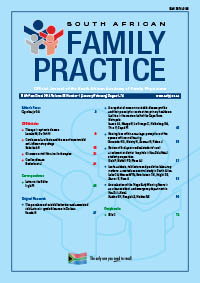Ethics in health care: the practice of defensive medicine
Keywords:
Defensive medicine, clinical practice, medical liability, litigation
Abstract
Defensive medicine is the practice of diagnostic or therapeutic measures that are conducted primarily as a safeguard against possible malpractice liability, rather than to ensure the health of the patient. Defensive medicine, a significant problem, is discussed in this article. First, an overview of the nature of defensive medicine is provided, with a focus on how it damages the doctor-patient relationship. It has been determined that doctors who utilise defensive medicine ultimately exact more harm than good on the practice of medicine. Finally, it is suggested that through ensuring that the doctor-patient relationship is impenetrable, fear of medical litigation will dissipate. The best antidote to malpractice allegations is ethical clinical practice. Core decisions remain bound in dialogue between the doctor and his or her patient. Continuing the tradition of the therapeutic alliance, informed consent and confidentiality in medical practice will diminish threats of medical liability.
Section
Ethics CPD Supplement
By submitting manuscripts to SAFP, authors of original articles are assigning copyright to the South African Academy of Family Physicians. Copyright of review articles are assigned to the Publisher, Medpharm Publications (Pty) Ltd, unless otherwise specified. Authors may use their own work after publication without written permission, provided they acknowledge the original source. Individuals and academic institutions may freely copy and distribute articles published in SAFP for educational and research purposes without obtaining permission.

